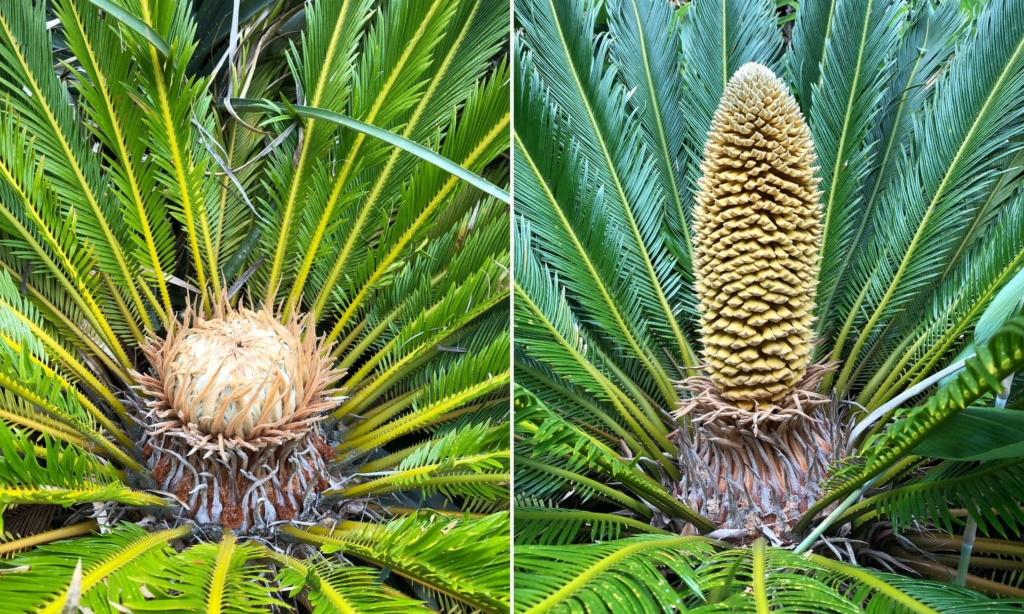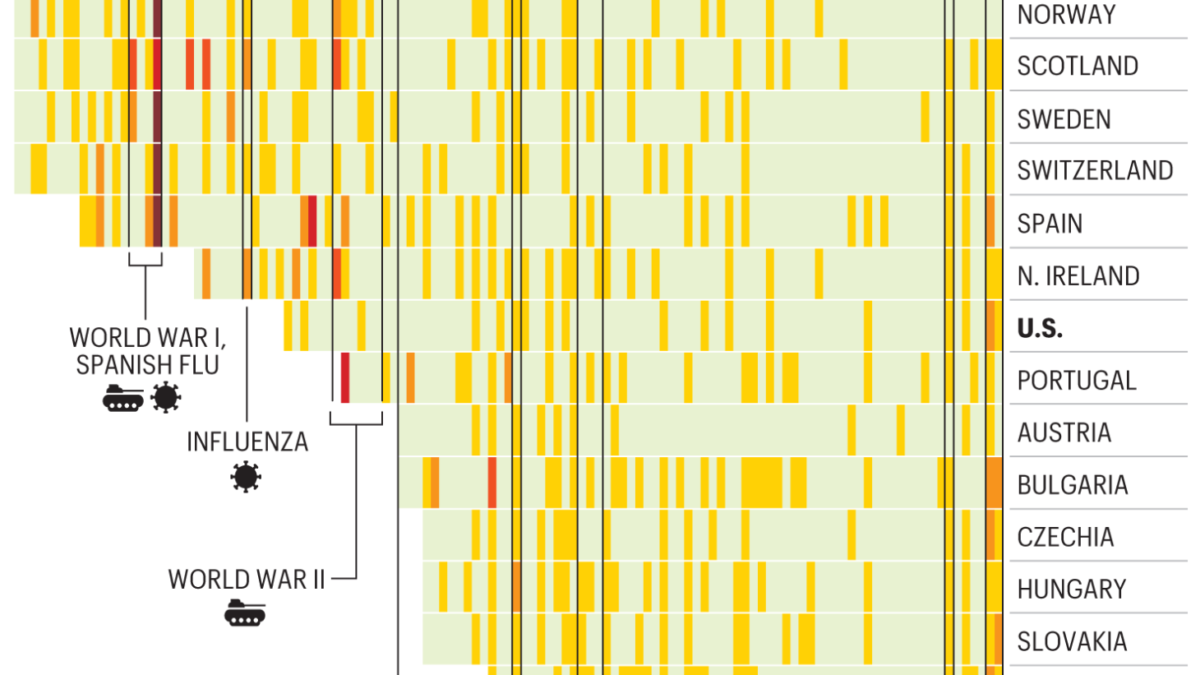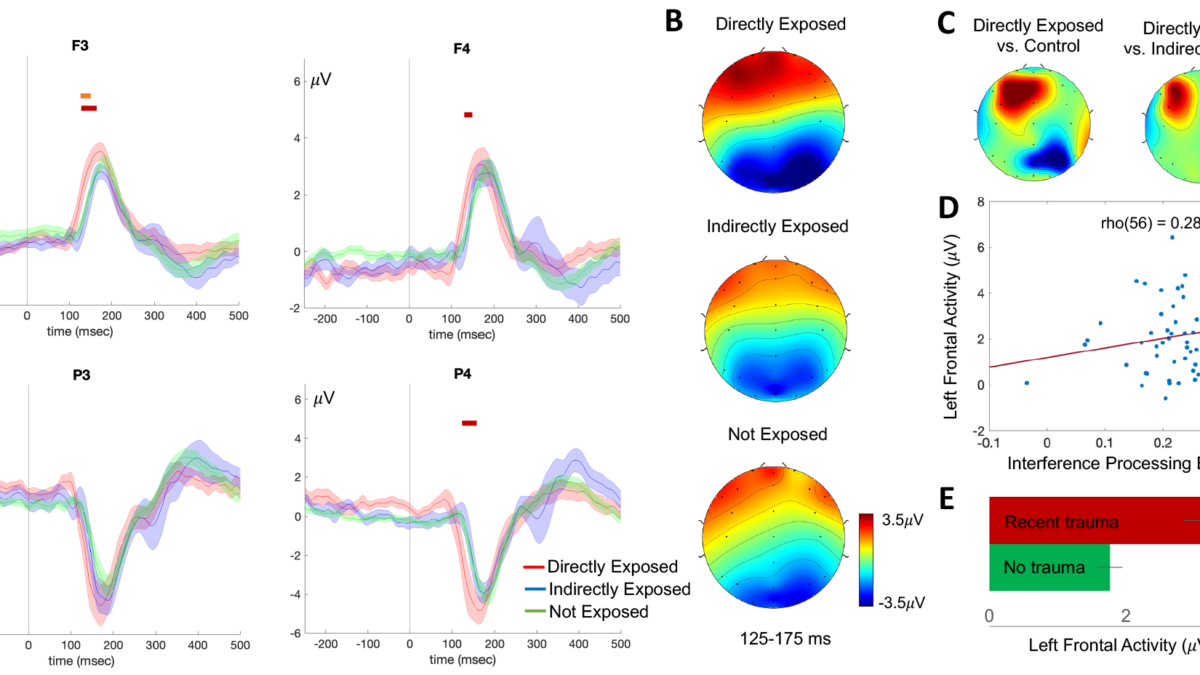Ancient plants set to reproduce in UK after 60 million years – “It is a strong indicator of climate change being shown, not from empirical evidence from the scientists but by plants”

By Patrick Barkham
22 August 2019
(The Guardian) – An exotic plant has produced male and female cones outdoors in Britain for what is believed to be the first time in 60 million years. Botanists say the event is a sign of global heating.
Two cycads (Cycas revoluta), a type of primitive tree that dominated the planet 280 million years ago, have produced cones on the sheltered undercliffs of Ventnor Botanic Garden on the Isle of Wight.
The species is native to Japan and usually only found indoors as an ornamental plant in Britain, but one of the garden’s plants has produced what is believed to be the first outdoor female cone on record in the UK.
Cycads previously lived in what is now Britain millions of years ago, with fossils of the plants found in the Jurassic strata of rock stretching from the Isle of Wight to the Dorset coast, an era when the Earth’s climate had naturally high levels of carbon dioxide.
A plant growing outside at Ventnor first produced a male cone seven years ago, but this year different plants have produced flower-like male and females cones, giving botanists the opportunity to transfer pollen and generate seed.
“For the first time in 60m years in the UK we’ve got a male cone and a female cone at the same time,” said Chris Kidd, the curator of Ventnor Botanic Gardens. “It is a strong indicator of climate change being shown, not from empirical evidence from the scientists but by plants.” [more]
Global heating: ancient plants set to reproduce in UK after 60m years


